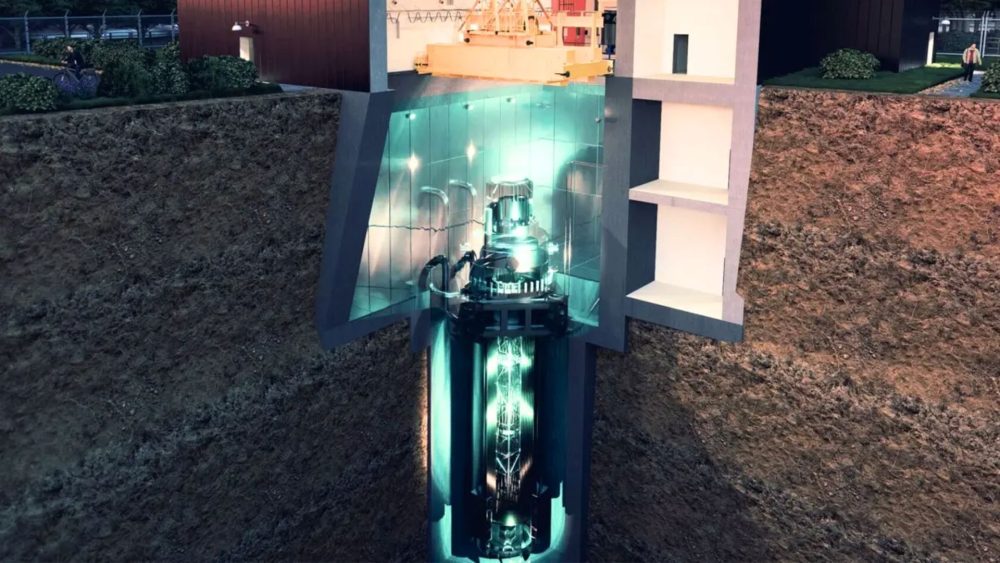A brand new French project is moving one step closer to making nuclear power smaller, safer, and more practical for urban living.
At the Cadarache research center, Calogena has signed an agreement with the French Alternative Energies and Atomic Energy Commission to test the deployment of its compact nuclear reactor, known as the CAL30.
CAL30 isn’t your run-of-the-mill, massive power plant. Instead, it is a small modular reactor (SMR) designed to generate 30 megawatts of thermal power.
This SMR runs at low pressure and temperature, making it inherently safer than traditional reactors. According to Calgena, the unit’s design is compact, requiring less than 33,000 square feet of land. Because of its design, it can be transported and installed more quickly than conventional nuclear systems.
Its refueling needs are small as well, taking just one truck every two years. That is a fraction of what dirty-fuel boilers demand.
Nuclear fission, the process of splitting uranium atoms to release energy, has long been a backbone of zero-carbon electricity generation. It is important to note, however, that fission is not renewable and relies on finite uranium resources.
Nuclear energy also generates radioactive waste that must be carefully managed. Water used in the storage process can also pick up radioactive isotopes such as tritium, requiring rigorous oversight.
That being said, it is still a much cleaner alternative to coal and natural gas. Small reactors like the CAL30 could make it easier for urban areas to access low-carbon heating and reduce the reliance on polluting fuels. An increase in nuclear energy over coal and natural gas creates an environment with far less air pollution, which will lead to better public health in the area.
Experts warn that SMRs aren’t a perfect solution. Each unit generates radioactive waste that requires careful, long-term storage for thousands of years. As Edwin Lyman from the Union of Concerned Scientists notes, many of these newer reactor designs have not been extensively tested, which raises concerns regarding their cost, safety, and scalability.
Still, Calogena’s move into the pre-licensing phase with French regulators marks progress toward bringing this technology to market. If successful, miniature reactors like the CAL30 could offer cleaner, more flexible energy solutions for cities by the 2030s.
Join our free newsletter for weekly updates on the latest innovations improving our lives and shaping our future, and don’t miss this cool list of easy ways to help yourself while helping the planet.
